Spring 2024 Courses
This is an unofficial list of courses that will be offered in Polish, Russian, and Lithuanian Studies in Spring 2024. It is strictly for the use of expanded course descriptions. For the complete official course offerings, please consult the My.UIC portal.
For a list of all courses and general course descriptions, please see the UIC Academic Catalog.
A flipbook containing Spring 2024 course flyers and more information about SPRING 2024 courses can be accessed at this link.
For information on Majoring and Minoring in Polish, Russian, and Central and East European Studies, including course requirements, please visit: https://prls.uic.edu/academics/major-and-minors/
Literature and Culture Courses (Taught in English) Heading link
POL 120: The Polish Short Story in Translation
MWF 3-3:50 PM
Instructor: Justyna Wąsik
3 hours. CRN: 32280
Where are the edges of storytelling in the times we live in? In this course, we’ll explore some of the more vital stories from fiction and nonfiction, film, arts, the techno scene, climate activism, political movements, television, and fake news journalism from Poland and its surroundings. We’ll spend our time watching, listening, reading, discussing, and creating various kinds of short stories. When spring is here again, we’ll set out on two field trip adventures to places in Chicago with unexpected Polish connections. Taught in English.
Satisfies Creative Arts or World Cultures GenEd requirement.
Counts towards the Polish Studies Major or Minor, & the CEES (Central & Eastern European Studies) Major or Minor.
Image
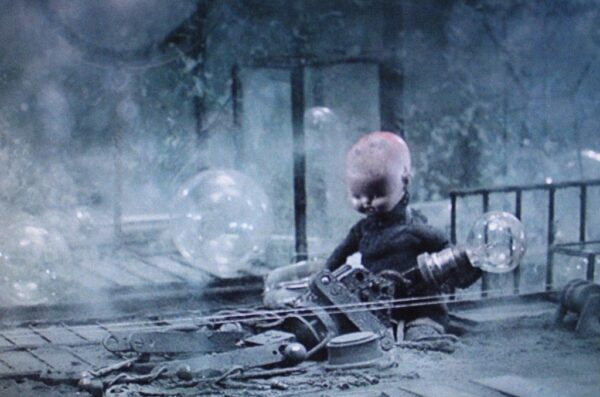
—
Image
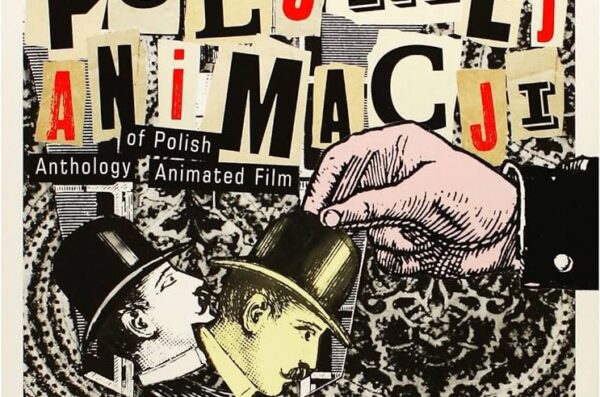
—
POL 150: Introduction to Polish Cinema
Tu/Th 12:30-1:45 PM
Instructor: Professor Karen Underhill
3 hours. CRN:35482
A survey of major movements and genres in Polish Cinema from the 1920s up to the present, including early Polish and Yiddish film, the Polish School of Filmmaking in Łódź, New-wave, Comedy films of the socialist period, World War II in film, the Polish School of Animation, and contemporary Polish film post-1989. Taught in English. Films screened with English subtitles.
Satisfies Creative Arts or World Cultures GenEd requirement.
Counts towards the Polish Studies Major or Minor, & the CEES (Central & Eastern European Studies) Major or Minor.
RUSS 116: Russian and Soviet Culture, 1917-Present
MWF 12-12:50 PM
Instructor: Brian Zdancewicz
3 hours. CRN: 17672
This survey course covers a variety of cultural texts (novels, poetry stories, reportage, cinema, popular music, and more) from a certain place and time: a space within the political orders of a state known at different points as the Russian Empire, the Union of Soviet Socialist Republics (USSR), or the Russian Federation (RF); a time defined by war and revolution in which a thousand-year-old state grumbled and Socialism became the guiding ideology of a new political power. We will discuss unique overarching intellectual and artistic currents that have shaped our recent past and turbulent present. As we explore this world through the creative works that its inhabitants produced, we will learn about modernization, revolution, experimentation, turmoil, triumph, and collapse, and we will learn about the people who created, experienced, and recorded these processes as they lived their lives.
Satisfies World Cultures GenEd requirement.
Counts towards the Russian Major or Minor, & the CEES (Central & Eastern European Studies) Major or Minor.
Image
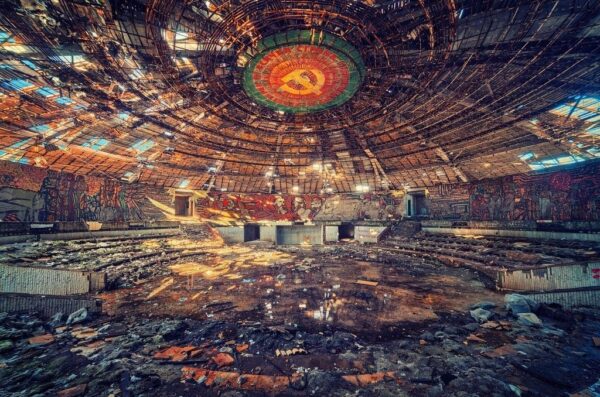
—
Image
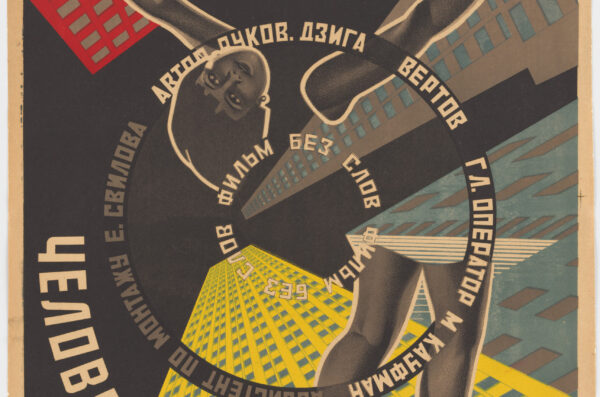
—
RUSS 150: Introduction to Russian Cinema
MW 9:30-10:45 AM
Instructor: Alena Kiianichenko
3 hours. CRN: 23710
This course will explore the history of Russian and Soviet cinema through the lens of media theories. Starting with the emergence of Soviet montage, we will cover the transition to Soviet sound cinema, Soviet thaw cinema, and even recent developments in Russian CGI and digital media. In each unit, the course asks students to consider the importance of material and political conditions in film and media history, and how these conditions produced new configurations between spectators and films. We will also discuss different approaches to film analysis.
Satisfies Creative Arts or World Cultures GenEd requirement.
Counts towards the Russian Major or Minor, & the CEES (Central & Eastern European Studies) Major or Minor.
RUSS 242: Tolstoy
Tu/Th 11-12:15 PM
Instructor: Professor Julia Vaingurt
3 hours. CRN: 17718
In this course we will study the evolution of Tolstoy’s art and philosophy from his first attempts at writing to one of his last works, “The Forged Coupon,” published posthumously. In the process, we will read two of the world’s most famous novels, War and Peace and Anna Karenina, and several of Tolstoy’s greatest short works, including “The Death of Ivan llych” and “Hadji Murat.” Through close readings of Tolstoy’s classics, we will analyze his artistic method, his philosophy of art, and his take, often controversial, on various political, social, and religious issues of his time. The author’s works will be studied against the backdrop of his life and the historic and cultural events of nineteenth-century Russia. Students will also get a chance to study the reception of Tolstoy’s art by watching clips from film adaptations and reading critical responses to his writing in his time and throughout the twentieth century. All readings, lectures and class discussions are in English.
Satisfies Creative Arts GenEd requirement.
Counts towards the Russian Major or Minor, & the CEES (Central & Eastern European Studies) Major or Minor.
Image
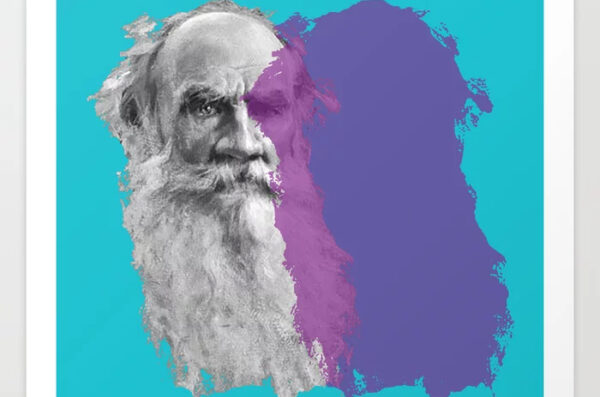
—
Image
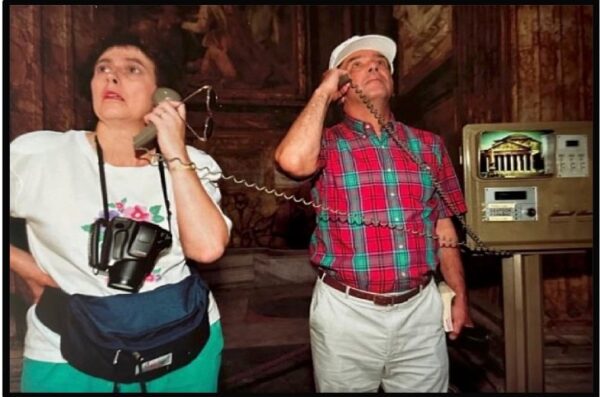
—
LCSL 250: Introduction to Comparative Cultural Studies
Tu/Th 9:30-10:45 AM
Instructor: Professor Michał Paweł Markowski
3 hours. CRN: 42719
One of the most essential and desirable skills in today’s divided and conflicted world is understanding how people live, work, and create in a multicultural environment. Join us as we explore how authors and artists represent and problematize the boundaries of national and cultural identities. How do we define those identities? Is “international” better than “national?” What does it mean in terms of culture to colonize and be colonized? How does globalization impact artistic individuality? How does translating texts and cultures allow the global circulation of ideas? The course will help students better comprehend how the specificity of national cultures is appropriated and consumed by readers and audiences across the “world.” Emphasis on diverse worldviews across Europe, Latin America, Asia, and Francophone cultures and their interactions. Competencies developed: analysis, critical thinking, equity & inclusion, and intercultural communication.
The course format implies active participation and discussion of reading materials in English. Counts as CEES 224/225.
Prerequisite(s): Credit or concurrent registration in ENGL 160 or 161 or completion of the English composition requirement.
Satisfies Creative Arts or World Cultures GenEd requirement.
Counts towards Polish Major or Minor, Russian Major or Minor, & CEES (Central & Eastern European Studies) Major or Minor.
LCSL 207: European Cinema, Visions of the Future
Tu/Th 2-3:15 PM
Instructor: Dr. Anton Svynarenko
3 hours. CRN: 38293
Much like period dramas are hardly ever only about the period they are set in, speculations about the future, more often than not, tell us something valuable about what is happening now and what happened before. Using the medium of film as a multidirectional time machine, we will travel between different eras designated as, alternately, “past,” “present,” and “future,” to explore the many possibilities for tomorrow envisioned yesterday and today-possibilities realized and foreclosed, still relevant and antiquated, revolutionary and conservative, na’fvely optimistic and bleakly alarmist. With the help of outstanding cinematic achievements by directors from all over Europe, we will trace the desires, fantasies, anxieties, and fears of people in different cultural contexts, informed as they are by technological advancements, political turmoil, and changing artistic conventions. As we get acquainted with the basic vocabulary of film criticism, the tenets of such genres as sci-fi and horror, and the most momentous events in 20th-century European history, we will also ponder some questions regarding humanity, politics, and aesthetics that persist in our imaginations to this day.
Satisfies Creative Arts or World Cultures GenEd requirement.
Counts towards the Russian Major or Minor, & the CEES (Central & Eastern European Studies) Major or Minor.
Image
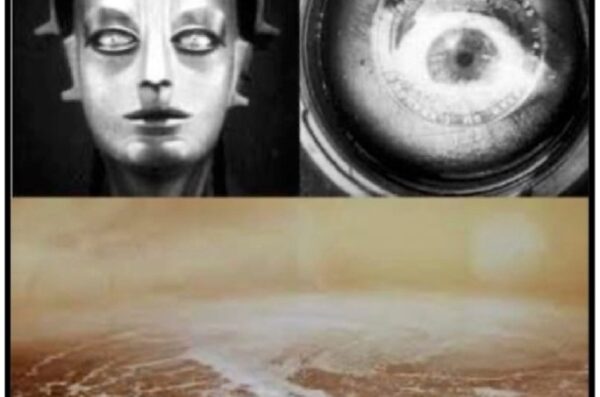
—
Image
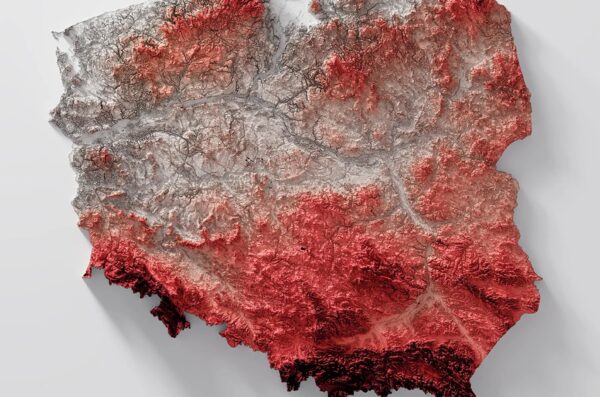
—
POL / HIST 234: The Making of Modern Poland
Tu/Th 11 AM – 12:15 PM
Instructor: Professor Keely Stauter-Halsted
3 hours. CRN: 30602
Exploration of political, socioeconomic, and cultural developments since the first Polish state, the union with Lithuania, the struggle for independence, and Communist rule to the present.
Same as POL 234. Prerequisite(s): ENGL 160 or completion of any 100-level history course.
Beginning and Intermediate Language Courses Heading link
| Course | Time | Instructor | Prerequisites | Credit/CRN | Room |
|---|---|---|---|---|---|
| LITH 102: Elementary Lithuanian 1 | MW, 8-9:15 AM | Karile Vaikute | LITH 101 or equivalent | 4 hours. CRN 34457 | GH 207 |
| LITH 104: Intermediate Lithuanian 2 | Tu/Th 8-9:15 AM | Karile Vaituke | Grade of C or better in LITH 103 or the equivalent | 4 hours. CRN 35480 | GH 207 |
| POL 102: Elementary Polish I | MWF 1-1:50 PM | Izolda Wolski-Moskoff | POL 101 or equivalent | 4 hours. CRN 18059 | LH 315 |
| POL 104: Intermediate Polish II | MWF 10-10:50 AM | Katarzyna Majchrowicz-Wolny | Grade of C or better in POL 103, or the equivalent, *or* successful placement test | 4 hours. CRN 35481 | SH 219 |
| POL 104 Intermediate Polish II (*For Bilingual Students*) | MWF 2-2:50 PM | Justyna Wąsik | Grade of C or better in POL 103 or the equivalent | 4 hours. CRN 34332 | LH 304 |
| RUSS 102: Elementary Russian II | MWF 10-10:50 AM | Ekaterina Petrenko | RUSS 101 or the equivalent | 4 hours. CRN 17668 | LH 115 |
| RUSS 102: Elementary Russian II | MWF 11-11:50 AM | Aleksandra Khuzina | RUSS 101 or the equivalent | 4 hours. CRN 17669 | LH 100 |
| RUSS 104: Intermediate Russian II (*For Bilingual Students*) | MWF 10-10:50 AM | Aleksandra Khuzina | Grade of C or better in RUS 103 or the equivalent, *or* successful placement test | 4 hours. CRN 17670 | SH 119 |
| RUSS 104: Intermediate Russian II | MWF 12-12:50 PM | Alena Kiianichenko | Grade of C or better in RUS 103 or the equivalent | 4 hours. CRN 46837 | SH 100 |
Advanced Language Courses Heading link
POL 201: Advanced Polish through Media and Film
MWF 12-12:50 PM
Instructor: Katarzyna Majchrowicz-Wolny
3 hours. CRN: 47141
This course will take us beyond the textbook: selected films will introduce us to the Polish visual media production and will serve as a starting point to conversations about a range of topics, from contemporary everyday life to life in the Polish People’s Republic (PRL), urban life and the countryside, animal rights, ecology, technology, conspiracy theories, and others. Exploring different genres of film, you will broaden your knowledge of Polish culture, society, and history. Simultaneously, you will build your language proficiency to the advanced level. You will expand your vocabulary, learn new grammar concepts, and develop the four linguistic skills: listening, speaking, reading, and writing with the goal to function in a Polish-only professional or academic environment.
Prerequisite: POL 104 or appropriate score on the placement test.
Counts towards the Polish Studies Major or Minor, & the CEES (Central & Eastern European Studies) Major or Minor.
Image
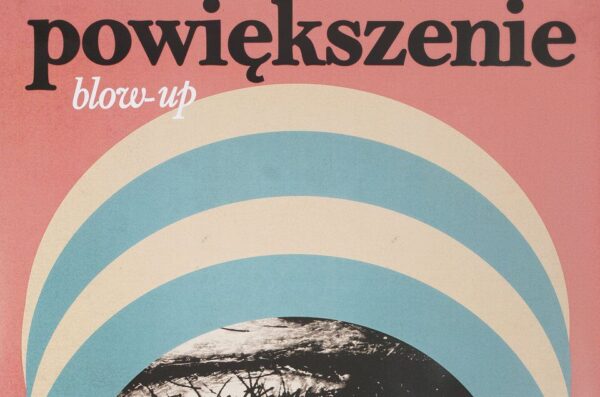
—
Image
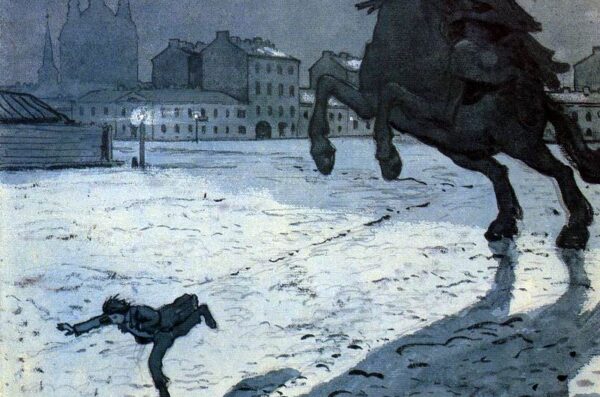
—
RUSS 203: Advanced Russian through Short Stories
MWF 2-2:50 PM
Instructor: Konstantin Mitroshenkov
3 hours. CRN: 437736
The objective of Advanced Russian Through Short Stories is to attain advanced proficiency in Russian in each of the four linguistic skills: listening, speaking, reading, and writing. While working on improving three modes of communication (interpersonal, interpretative, and presentational), the course will expand your knowledge of the Russian lexicon and improve your use of grammar, it will also attempt to deepen your understanding of Russian culture and society. Emphasis will be placed on developing oral and written language production at advanced level that would enable you to function in a Russian-only professional or academic environment. Aside from regular readings, assignments may include: compositions; oral presentations; work with film and other audiovisual materials; class discussions; as well as work with the Internet. The course will be taught in Russian.
Counts towards the Russian Major or Minor, & the CEES (Central & Eastern European Studies) Major or Minor.
Advanced Undergraduate and Graduate Courses Heading link
CEES 320: Heaven & Hell
Tu/Th 3:30-4:45 PM
Instructor: Professor Karen Underhill
3 hours. CRN: 26901
Lucifer comes to modern-day Warsaw looking for a job, but no one will hire him. What is an unemployed devil to do? In Kafka’s parable “Before the Law”, a man from the country waits a lifetime to gain entry to the law: will the doorkeeper ever let him through? Poor Bontshe The Silent, abused and downtrodden his entire life, makes it to heaven where a court of angels weighs his suffering, and rewards him his heart’s desire: a warm roll with butter. In “dead towns” and underworld dreamscapes of the modern Central and East European short story, the living mingle with the dead, wrestle with angels, and bargain for salvation. How can we understand the presence of these themes in works of modern secular literature? In this class we will read masterpieces of the short story in translation from Polish, Russian, German, and Yiddish, and explore together modern literary representations of hope and faith, punishment and reward, regret at the retreat of the metaphysical in a rational age; justice, redemption, and apocalypse.
No prerequisites.
Counts towards Polish Major or Minor, Russian Major or Minor, & CEES (Central & Eastern European Studies) Major or Minor.
Image
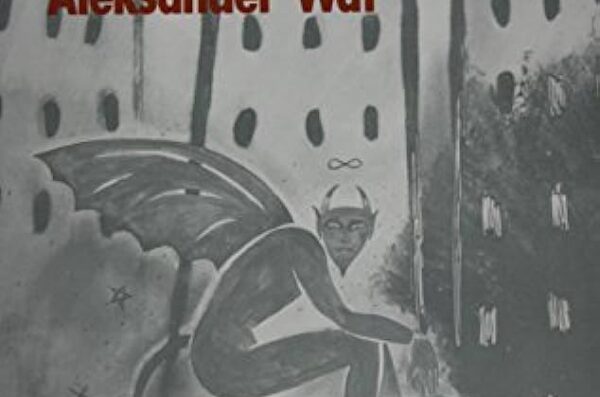
—
Image
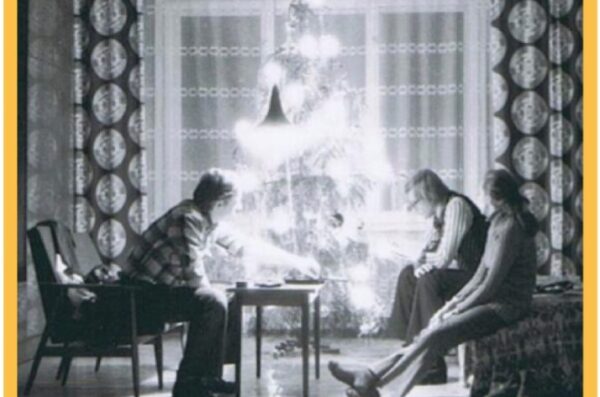
—
POL 460: Poles at Home: Class, Social Change and Everyday Life in Poland after 1945
Tues 5-7:30 PM
Instructor: Dr. Michał Oleszczyk
3 hours. CRN: 26901
In the photo, you can see my Polish parents in the year 1980, two years before I was born. That year, the average Polish monthly salary equaled $30 (about as much as one decent dinner in New York City). The Communist economy, determined by the Cold War, was deteriorating, but millions of Poles still lived, loved, made plans for the future, and played board games under a Christmas tree, as you see in the photo. How was that possible? What was it like to be a Pole after 1945? How did Polish everyday life change in the decades between WWII and now? This course will look at everyday Polish life in areas such as class, food, housing, design, economics, gender politics, fashion, and popular culture. Using Polish film and television works as an entry point into Polish society in a state of rapid transformation, the course will allow us to look at Poland and its complex history from the standpoint of everyday citizens living their lives in a country that is still striving for a better understanding of itself and its place in the world.
Counts towards the Polish Studies Major or Minor, & the CEES (Central & Eastern European Studies) Major or Minor.
CEES 435: Russia in Transition: Building the Soviet "Empire of Nations" / Topics in Russian History
Mon 3-5:30 PM
Instructor: Professor Marina Mogilner
3 hours. CRN: 26901
Counts towards the Russian Major or Minor, & the CEES (Central & Eastern European Studies) Major or Minor.
Image
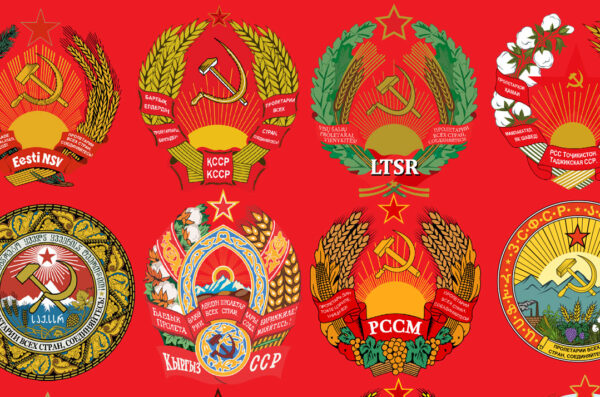
—
Image
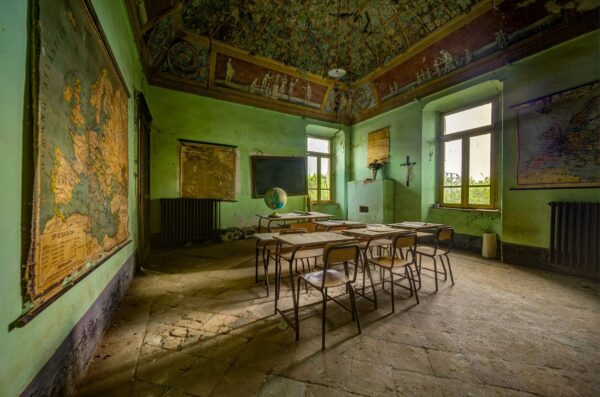
—
CEES 551: World, Globe Earth: Figures of Universalization in the Contemporary Culture (Critical and Theoretical Approaches to Cultural Production in Central and Eastern Europe)
Weds. 6-8:30 PM
Instructor: Professor Michał Paweł Markowski
4 hours. CRN: 43733
When did the idea of the world emerge? How does “the world” differ from “the globe”? Why and how “globalization” took over? What is “Earth” in the age of globalization? What does “world literature” mean in the age of total connectivity? Does such a thing as “global literature” exist? Is “international” better than “national”? Going back and forth between ancient and contemporary times and across the broad spectrum of cultures, the seminar will try to systemize the conceptual repertoire related to the tension between the particular and the universal in contemporary critical vocabulary. Is it better for us to defend our specific belonging to a culture, a language, or a nation, or would it be much better to yield to what goes beyond the unique and unites the seemingly incompatible? What is the role of translations in establishing the global literary market? Does such a thing as the “republic of letters” exist? We will base our analyses on literary and critical texts, bringing together old and new interventions in the field and trying to connect different cultures and languages.
LCSL 510: Proseminar in Critical and Literary Theory
Thurs. 5-7:30 PM
Instructor: Professor Julia Vaingurt
4 hours. CRN: 39283
This seminar will examine the major trends and schools of literary theory, with a particular focus on the 20th and 21st centuries. The course will equip students with scholarly methodologies for approaching verbal and visual texts and introduce them to some of the key problems or questions that animate theoretical discussion among literary scholars today. These include questions about language and authorship, ideology and hegemony, psychoanalytic symptoms and drives in narratives, the production of cultural value and the status of an aesthetic object, biopolitics and bioethics, and the patriarchal and colonial bases of Western culture. Students will get a chance to reflect upon the very concept of “interpretation” and their own role as literary and cultural critics. They will investigate and critique various critical methodologies as well as try them out on a short story of their choice. Students will be asked to choose a story and write five short essays (no longer than 5 pages each) from five different critical perspectives during the semester.
Image
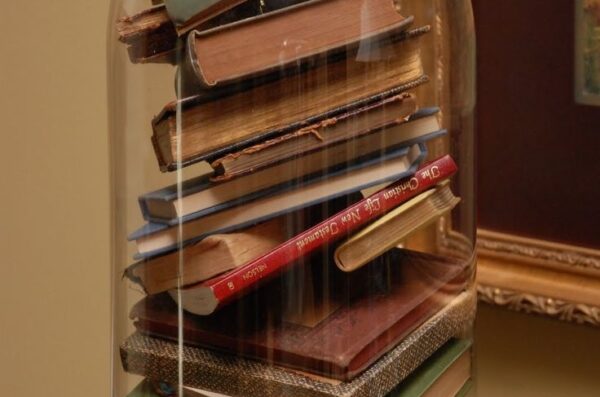
—